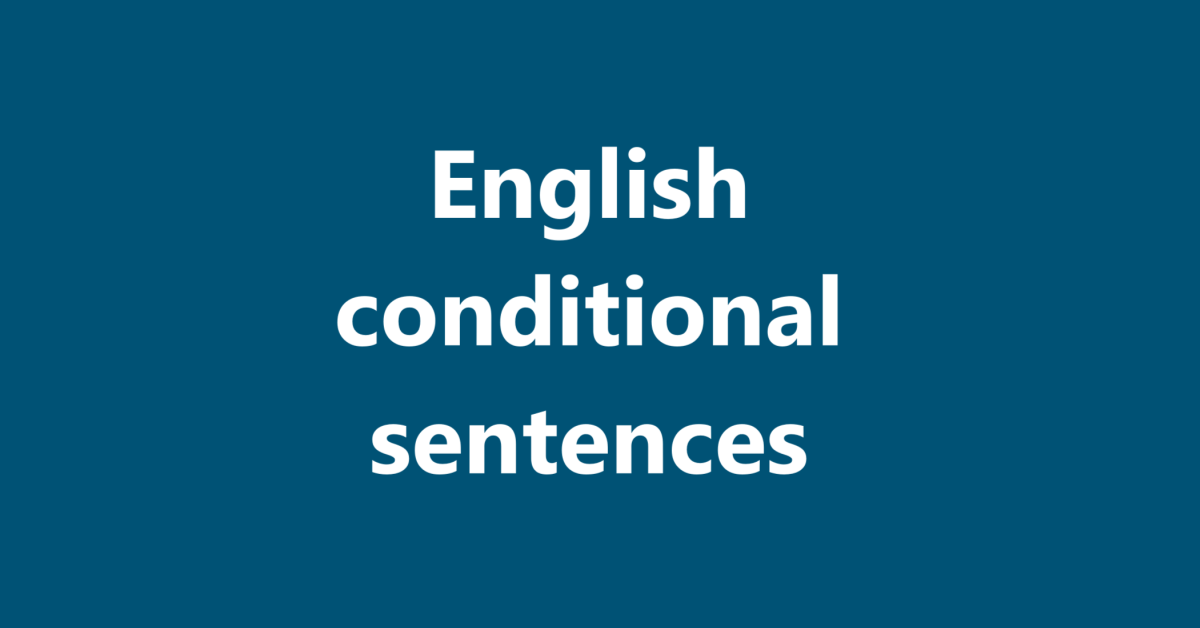Let’s dive deeper into each type of conditional sentence, including more detailed explanations, examples, and nuances.
1. Zero Conditional
- Structure: If + present simple, present simple
- Purpose: Used to express general truths, scientific facts, and things that are always true under certain conditions.
Explanation:
This type of conditional is called “zero” because it reflects situations that are always true, so there’s no uncertainty about the outcome. You typically use the present tense for both the condition and result.
Examples:
- “If you mix red and yellow, you get orange.”
(This is a factual statement about color mixing.) - “If it rains, the ground gets wet.”
(This shows a common occurrence; whenever it rains, the ground becomes wet.)
2. First Conditional
- Structure: If + present simple, will + base verb
- Purpose: Used for real situations that are likely to happen in the future.
Explanation:
The first conditional expresses a possible situation in the future and its likely result. The condition is in the present simple tense, and the result is in the future simple tense (using “will”).
Examples:
- “If I finish my report by 5 PM, I will join you for dinner.”
(There’s a real possibility of finishing the report by 5 PM.) - “If it rains tomorrow, we will cancel the picnic.”
(The decision to cancel relies on the weather being rainy.)
3. Second Conditional
- Structure: If + past simple, would + base verb
- Purpose: Used to talk about hypothetical or unlikely situations in the present or future.
Explanation:
The second conditional deals with unreal or improbable conditions. The condition uses the past simple tense, and the result uses “would” plus the base verb.
Examples:
- “If I were a billionaire, I would travel the world.”
(There’s no real expectation that I’m a billionaire.) - “If she knew the answer, she would tell us.”
(She doesn’t know the answer, so this is a hypothetical situation.)
Note: In the second conditional, “were” is often used with all subjects (especially in formal contexts), e.g., “If I were” instead of “If I was.”
4. Third Conditional
- Structure: If + past perfect, would have + past participle
- Purpose: Used to talk about situations that did not happen in the past and their imagined results.
Explanation:
The third conditional reflects on past actions that didn’t occur and their potential outcomes. The condition uses the past perfect tense, while the result uses “would have” plus the past participle.
Examples:
- “If I had known you were coming, I would have baked a cake.”
(I didn’t know you were coming, so I missed the chance to bake.) - “If they had left earlier, they would have arrived on time.”
(They left later than they should have, leading to their tardiness.)
5. Mixed Conditional
- Structure: If + past perfect (for the condition), would + base verb (for the result)
- Purpose: Combines a past condition with a present result, reflecting how past actions affect the present.
Explanation:
Mixed conditionals connect a past hypothetical situation to a present context. The condition is in the past perfect tense, while the result is expressed in the present using “would.”
Examples:
- “If I had studied harder in school, I would have a better job now.”
(Not studying hard in the past affects my current job situation.) - “If she had taken the train, she would be here by now.”
(Missing the train affects her present arrival time.)
Practice Sentences
To reinforce your understanding, here’s a set of practice sentences. You can fill them out or think about what they mean:
Zero Conditional
- If you _______ (touch) ice, it _______ (feel) cold.
First Conditional
- If we _______ (leave) early, we _______ (avoid) traffic.
Second Conditional
- If I _______ (win) the lottery, I _______ (buy) a house.
Third Conditional
- If you _______ (invite) me to the party, I _______ (come).
Mixed Conditional
- If I _______ (be) more disciplined in the past, I _______ (not/struggle) now.
Summary
- Zero Conditional: Always true facts (If you heat ice, it melts.)
- First Conditional: Possible future situations (If it rains tomorrow, I will stay home.)
- Second Conditional: Hypothetical present/future situations (If I were you, I would take that job.)
- Third Conditional: Past situations that didn’t happen (If I had seen the movie, I would have told you about it.)
- Mixed Conditional: Past conditions affecting the present (If I had worked harder, I would be more successful now.)

